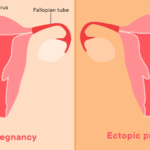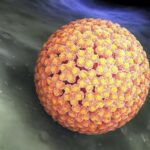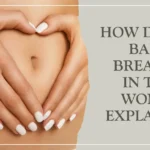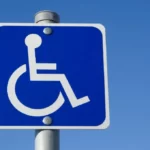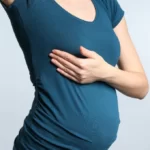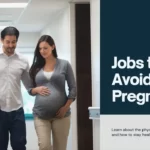
Many new moms panic when their hair starts falling out in clumps, somewhere between three and six months after giving birth. Suddenly, all those grandma stories about bad teeth and losing hair after pregnancy look so real, and you freak out. This phenomenon, also known as postpartum alopecia, affects a significant number of women after giving birth. In this article, we will explore the reasons behind postpartum hair loss and discuss effective strategies to prevent it. Whether you are a new mom experiencing this issue or simply curious about it, read on to discover valuable insights and tips.
Reasons of Postpartum Hair Loss
Postpartum hair loss can be attributed to several factors. Understanding these underlying reasons can help shed light on why this condition occurs and how to address it effectively.
Hormonal Changes: The Culprit Behind Hair Loss
Hormonal fluctuations play a crucial role in postpartum hair loss. During pregnancy, elevated hormone levels, particularly estrogen, prolong the growth phase of the hair cycle. This results in thicker, more voluminous hair. However, after childbirth, hormone levels drop dramatically, causing the hair to enter a resting phase known as telogen. Consequently, many hairs simultaneously enter this phase, leading to excessive shedding and noticeable hair loss.
Nutritional Deficiencies: Fueling the Problem
The demands of pregnancy and breastfeeding can deplete vital nutrients in a mother’s body, which can have an impact on hair health. Nutritional deficiencies, particularly of iron, zinc, biotin, and vitamins A and D, can contribute to postpartum hair loss. These nutrients are essential for hair growth and strength, and their scarcity can disrupt the normal hair cycle, leading to increased hair shedding.
Stress and Sleep Deprivation: Taking a Toll on Hair
The early stages of motherhood are often accompanied by significant stress and sleep deprivation. Constantly caring for a newborn, adjusting to a new routine, and coping with hormonal changes can all contribute to stress levels and lack of sleep. These factors can disrupt the body’s natural balance, leading to hair loss or exacerbating existing hair loss conditions.
Telogen Effluvium: Temporary Hair Shedding
Telogen effluvium is a condition characterized by excessive hair shedding, often triggered by a significant physiological event like childbirth. The stress placed on the body during pregnancy and delivery can disrupt the hair growth cycle, causing an increased number of hairs to enter the telogen phase. While this condition is temporary, it can be distressing for new mothers who are already adjusting to various postpartum changes.
How to Prevent Postpartum Hair Loss?
Now that we understand the reasons behind postpartum hair loss, let’s explore effective strategies to prevent it and promote healthy hair growth.
Maintain a Balanced and Nutritious Diet
Eating a well-balanced diet rich in essential nutrients is crucial for preventing postpartum hair loss. Include foods that are high in iron, zinc, biotin, and vitamins A and D in your meals. Incorporate leafy greens, lean proteins, whole grains, fruits, and vegetables into your diet to ensure you’re getting an adequate supply of essential nutrients for healthy hair.
Consider Nutritional Supplements
In some cases, it may be challenging to obtain all the necessary nutrients solely through diet. Consult with your healthcare provider to determine if taking nutritional supplements is appropriate for you. Supplements such as prenatal vitamins or those specifically formulated for hair health can provide an extra boost of essential nutrients.
Practice Stress Management Techniques
Managing stress is essential for overall well-being, including hair health. Incorporate stress management techniques into your daily routine, such as deep breathing exercises, meditation, yoga, or engaging in hobbies that bring you joy and relaxation. Taking time for self-care and prioritizing your mental and emotional well-being can help minimize the impact of stress on your hair.
Prioritize Sleep
Getting sufficient sleep is crucial for your body’s overall functioning, including hair health. Aim for a consistent sleep schedule and create a relaxing bedtime routine. Avoid excessive screen time before bed and create a calm and comfortable sleep environment to ensure you’re getting the restorative sleep your body needs.
Be Gentle with Your Hair
During the postpartum period, it’s important to handle your hair with care to minimize hair loss. Avoid hairstyles that pull tightly on the hair, as this can lead to traction alopecia. Use gentle hair accessories and avoid excessive brushing or combing. When washing your hair, use a mild shampoo and conditioner, and avoid excessive heat styling or chemical treatments that can further weaken the hair.
Seek Professional Advice
If you’re experiencing significant hair loss or are concerned about your hair’s health, it’s advisable to consult a healthcare professional or a dermatologist. They can assess your specific situation, identify any underlying issues, and provide personalized recommendations or treatments to address your concerns.
Conclusion
Postpartum hair loss can be a concerning and distressing experience for new mothers, but it is a common and temporary condition. By understanding the reasons behind postpartum hair loss and implementing preventive measures such as maintaining a nutritious diet, managing stress, and practicing gentle hair care, you can minimize the impact and promote healthy hair regrowth. Remember to be patient and kind to yourself during this phase of motherhood, as your hair will likely regain its fullness and vitality over time.
Frequently Asked Questions (FAQs)
Is postpartum hair loss permanent?
No, postpartum hair loss is typically a temporary condition. It usually resolves on its own within a few months as the hair cycle returns to normal.
Can breastfeeding cause postpartum hair loss?
While breastfeeding itself does not directly cause hair loss, the hormonal changes associated with breastfeeding can contribute to postpartum hair loss. The drop in estrogen levels after childbirth is the primary factor behind hair shedding.
Are there any specific hair care products that can prevent postpartum hair loss?
While there are numerous hair care products on the market claiming to prevent hair loss, it’s essential to approach them with caution. Consult with a healthcare professional or dermatologist before using any specific products to ensure they are safe and suitable for your individual needs.
Can postpartum hair loss be prevented?
While postpartum hair loss cannot be entirely prevented, certain measures can help minimize its severity. Maintaining a balanced diet, managing stress, practicing gentle hair care, and ensuring adequate sleep are all essential for promoting healthy hair growth and minimizing excessive shedding.
How long does it take for hair to grow back after postpartum hair loss?
Hair regrowth after postpartum hair loss varies from person to person. In most cases, the hair starts to grow back within a few months after the shedding phase ends. However, it may take up to a year for the hair to fully regain its pre-pregnancy thickness.
Does postpartum hair loss occur after every pregnancy?
Postpartum hair loss can occur after any pregnancy, but it is not experienced by all women. Some women may have minimal or no hair loss, while others may experience more noticeable shedding. The severity and duration of postpartum hair loss can vary.
Related: How to Increase Milk Supply?

